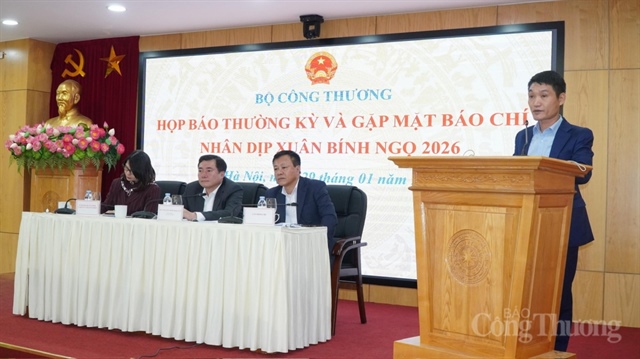India’s import quotas harm local incense firms
India’s import quotas harm local incense firms
This opinion was put forward at a meeting between businesses and State agencies related to the issue this week. At this meeting held by the WTO Centre under the Viet Nam Chamber of Commerce and Industry in Ha Noi, the participants put forward and solutions to deal with this serious trade barrier.

Tran Thanh Hai, director of the Ministry of Industry and Trade (MoIT)’s Import and Export Department said India has revised its import policy of incense sticks and related products from free to restricted, as stated in a public notice of India’s Ministry of Commerce and Industry on August 31.
It was opined that the sudden and unannounced requirement of licences will cause huge damage to Vietnamese businesses, especially during the peak demand in the South Asian nation which falls in September and October.
According to the MoIT, Viet Nam has more than 100 businesses with about 2,500 rural workers providing material or directly producing and processing incense sticks.
If State agencies do not fight, businesses in the domestic incense stick production industry will collapse, said Vo Xuan Hoi, chairman of the Truong Giang Company that has exported incense sticks to India for more than 20 years.
According to Hoi, because it is a special product, the Government needs to ask the Indian side to delay implementation of the import quotas for this product to help local businesses arrange goods and workers appropriately.
The immediate application of this provision is unprecedented worldwide, except for cases of disease, he said.
The Indian government should revise this regulation. This trade barrier will greatly affect the reputation of Indian businesses and the supply of Vietnamese enterprises, Hoi was quoted by Vietnam News Agency as saying.
The Anh Hong Co, Ltd’s representative said it has exported incense sticks to India since 1996 and production activities have been quite stable. So, it has just reinvested VND30 billion in machinery and equipment systems and technological innovation to develop the incense stick production.
However, with this situation, the company now has a huge inventory worth more than VND20 billion while its financial source is mainly based on bank loans.
The company expects the Government to support the incense stick production industry to overcome this problem, the representative said.
Hai said the trade barrier is not new but the most serious issue is that it must be applied immediately without a period for the local enterprises preparing to deal with the trade barrier.
Meanwhile, India itself has not given any good reason for implementation of the trade barrier, he said. Therefore, Vietnamese State management agencies are as confused as the local enterprises.
Hai said the businesses need to connect and establish an association for businesses, business households and workers in this industry to protect their benefits and solve problems in business and production.
The businesses also need to have more knowledge about the international trade environment to be able to respond to trade remedies like this, he said. They should also improve their competitiveness and diversify products and markets.
Meanwhile, the ministry will coordinate with the Ministry of Foreign Affairs to submit this issue to a higher level, said Hai, adding that the Vietnamese Embassy and Trade Office in India are asked to closely follow this case and urge the Indian side to solve it.
The Vietnamese enterprises should co-operate with Indian importers who are also impacted by the trade barrier to raise objections and claim legitimate interests.
Nguyen Thi Thu Trang, Director of WTO and Integration Centre, said it is impossible to ask the Indian Government to cancel a regulatory document. But there must be a meeting soon between the Governments of the two countries to postpone the implementation of the import quotas for Vietnamese incense sticks to India as well as discuss the legality and soundness of this regulation.
According to Trang, it is necessary to comply with the compulsory WTO regulations, if issuing import regulation, India must ensure that the regulation will come into effect within 21 days.
























